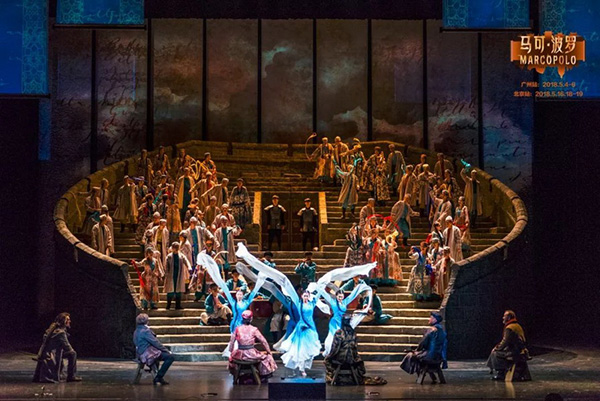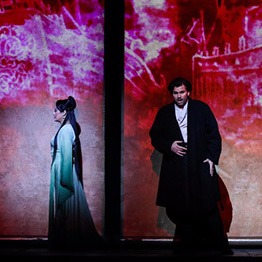‘Marco Polo’ opera impresses, enlightens


As the first medieval European to record his time in China in detail, Italian explorer Marco Polo is a well-remembered figure even in the modern age.
Polo put his experiences to paper in the world-famous Travels of Marco Polo, a log which now serves as, if nothing else, a reflection of his contemporaries’ attitudes toward the eastern world. While the popular perception of China in Europe was, at the time, of a backward and barbaric society, Polo turned those notions on their head with his work. He described an advanced, thriving civilization under the Yuan Dynasty (1271-1368) and the court of Kublai Khan, introducing a new image of China to the world.
His journey, set to music in an opera which bears his name, opened to rapturous reception at the Tianqiao Center for the Performing Arts last month. Though Marco Polo is not a strict adaptation of his journals, adding plot elements not found in the original inarguably enhances the drama. Curious audience members would do well to research the real story afterward — but then, an opera house isn’t exactly the place one goes for strict history lessons.





































